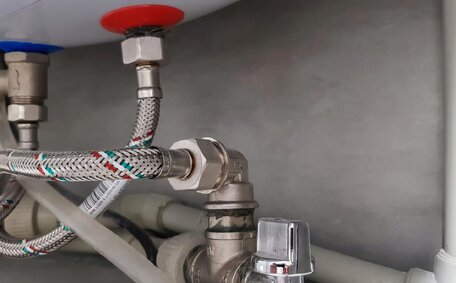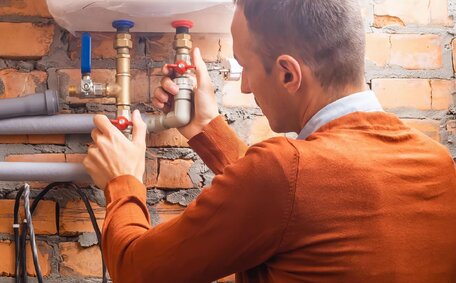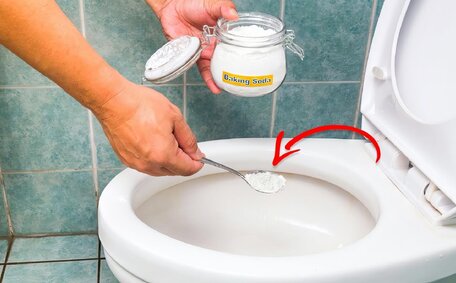Introduction to Modern Hot Water Technologies
Access to energy-efficient hot water is crucial for comfort at home. With advancements in technology, today’s hot water systems are more energy-efficient and cost-effective than ever, cutting down on energy use significantly.
Traditional electric or gas units, as well as newer heat pump or solar options, cater to diverse household needs.
As an established plumbing company serving the North Epping area of Sydney for over 10 years, North Epping Plumbing offers all major types of water heating systems.
Our licensed technicians will tailor the installation and maintenance of your hot water system to your usage, space, and budget requirements.
This guide compares traditional and modern hot water systems, focusing on energy efficiency, initial costs, operating expenses, expected lifespans, and related factors.
We’ll review the evolution of water heater technology, highlighting how today’s heaters have become smarter and eco-friendlier. We aim to help you make an informed choice that matches your household’s specific needs.
Popular Types of Hot Water Systems
Electric Storage Hot Water Systems
Electric hot water systems, utilising insulated tanks, warm water with electric heating elements. Cold water when it enters the bottom of water storage, gets heated up, then exits from the top to supply hot water to your home.
Gas Storage Hot Water Systems
Gas hot water systems feature an insulated tank with a gas burner, bypassing electrical elements for heating. Natural gas or LPG is burned to generate water heat, which is then transferred to the water via a heat exchanger inside the tank.
Heat Pump Hot Water Systems
Heat pump systems are among the more efficient solutions, leveraging technology that can heat air to warm water in the storage tank. This allows them to generate more than 3 times the heat energy compared to the electrical energy they consume.
Solar Hot Water Systems
Solar hot water systems employ roof-mounted collectors to capture solar energy. This solar thermal energy gets used to preheat water before it enters the storage tank unit, reducing overall energy demands.
These systems use insulated storage tanks with capacities of 50 to 400 litres.
Cold water enters from the bottom, is heated, and exits from the top, delivering hot water immediately.
Advantages of electric storage units are as follows:
- Simple and reliable technology that has been used for decades
- Low purchase cost compared to heat pumps or solar systems
- Easy to install and service
- Established supply chains and qualified tradespeople across Australia
However, they have the following drawbacks:
- Ongoing running costs from grid electricity usage
- Only moderately energy efficient, maintaining a typical 3-3.5 star rating under the MEPS system
- Ageing tanks susceptible to corrosion and leaks over time
- Limited control beyond basic timers
Modern electric and gas tankless water heaters now have better insulation to maximise heat retention, with some models offering Wi-Fi connectivity for remote monitoring and control, enhancing convenience and enabling cost savings.
Gas Storage Tank Water Heaters
Gas solar water heaters rely on the combustion of natural gas or LPG to heat water, rather than electric elements. This process occurs via a heat exchanger inside an insulated storage tank, which holds anywhere from 50 to 400 litres just like electric storage units.
Gas storage water heaters have the following advantages:
- Reduced operational costs as gas typically costs less per energy unit than grid electricity.
- Proven technology that lasts for years with basic maintenance
- No expensive solar panels or heat pump units to purchase upfront
- Continue functioning during blackouts when electric models lose heating capabilities
The drawbacks of gas storage water heaters are:
- Higher greenhouse emissions relative to electric, heat pump or solar
- Require connection to mains gas line or refillable LPG tank
- Older tanks may develop corrosion over time.
- Limited smart capabilities beyond basic timers
Contemporary gas water heaters have improved insulation for better heat retention, with features like electronic ignition to eliminate the need for a constant pilot light, and some models provide app connectivity for remote management.
Tankless/On-Demand Water Heaters
Tankless water heaters, delivering continuous hot water, don’t require a storage tank. Water heats up on demand through gas burners or electric elements as it flows through the unit, eliminating standby energy losses.
Benefits of tankless systems include:
- Compact, wall-mounted design conserves space
- Virtually endless supply of continuous flow hot water
- Only heat water as required, ensuring flow hot efficiency
- Can reduce energy bills by around 20-35%
- Long lifespan of up to 20 years with basic maintenance
Considerations when deciding if tankless is suitable:
- Initial costs can exceed $2,000 for the purchase and installation
- Some homes may need upgraded gas lines or electrical wiring
- Flow rate limitations may impact properties with multiple bathrooms
- Regular descaling needed in hard water areas to prevent mineral buildup
In summary, tankless heaters offer instant hot water, improving convenience and potentially saving on costs thanks to their energy-efficient operation, while also saving space compared to traditional storage tanks.
Heat Pump Water Heaters
Pump hot water system options, like heat pump water heaters, are among the most energy-efficient options available. They operate like a refrigerator or air conditioner, using a heat pump and refrigeration cycle to extract heat from the air and transfer it to water.
Compared to conventional electric water heaters, Heat pump units prioritise eco-friendliness by using significantly less electricity compared to conventional heaters. This equates to lower energy bills and reduced greenhouse emissions.
Heat pump units’ remarkable efficiency stems from their advanced technology. A compressor and evaporator fan circulate refrigerant fluid that absorbs ambient heat before releasing it to water through a coiled heat exchanger inside the storage tank.
Despite their higher initial cost, the long-term savings from heat pump water heaters generally yield a favourable return on investment, with government rebates available to help reduce the upfront expense.
Heat pump systems, known for their transformative effect on energy usage, are best for homes with adequate installation space. Contact North Epping Plumbing to assess if a heat pump water heater is right for your home.
Solar Water Heating Systems
Solar hot water systems provide an eco-friendly solution utilising renewable energy. They work by using solar thermal collectors, typically mounted on the roof, utilising a solar heat pump to capture hot sunlight.
This solar heat is then used to preheat cold water before it enters the water tank or an instantaneous gas/electric heater unit to reach higher temperatures.
Advantages of solar hot water systems:
- Reduce energy bills and reliance on the grid by harnessing clean energy, freely available from the sun
- Solar collectors have a lifespan of 15-20 years with minimal maintenance
- Lower carbon footprint relative to conventional electric/gas systems
- Eligible for government rebates and Small-scale Technology Certificates (STCs)
Points to consider for solar hot water systems:
- Higher upfront system costs, though long term savings typically achieve payback
- Supplementary conventional system like gas or electric boosters may be required for cloudy days
- Restricted functionality in very cold climates compared to moderate environments
- Requires adequate unshaded north-facing roof space for collector positioning
With rising energy costs, a solar hot water system investment can secure long-term savings. Contact our team at North Epping Plumbing to discuss solar thermal options suitable for your home.
Comparing Efficiency and Costs
When deciding on a hot water system for your North Epping home, a key consideration alongside upfront purchase costs is the ongoing efficiency and running expenses.
Modern electric and gas storage systems can achieve above a 3-star MEPS rating, indicative of good efficiency, with annual energy costs averaging $300-$350.
More advanced options offer superior efficiency and lower greenhouse gas emissions:
- Heat pump units consume around 65% less electricity, with energy bills from $120 per year.
- Solar hot water cuts annual costs to $180 or less by harnessing renewable solar thermal energy.
- Tankless heaters also rate well by heating water instantly without storage losses.
Tankless and heat pump systems have higher setup costs, but STC rebates can lower the expense to $1,200 or less.
Given that electricity prices in North Epping are well above the national average at 30 cents per kWh, investing in a new water heating system can lead to substantial savings, often much more than $2000 over a decade, when compared to relying solely on grid energy.
Contact our team at North Epping Plumbing to explore your most cost-effective and efficient hot water solution.
Latest Advancements in Technology
Advancements in hot water technology, including potential integration with home battery systems, offer enhanced efficiency, convenience, and control. Notably, smart water heaters with Wi-Fi connectivity enable remote adjustments and optimisations using smartphone apps.
Smart water heaters learn usage patterns to target heating times when the electricity tariff is lowest. Materials science improvements include superior insulation like vacuum sealing to enhance heat retention.
They can also detect faults early and diagnose issues automatically. Hybrid heat pump electric systems leverage dual technologies for improved efficiency.
The integration of IoT technologies facilitates communication among appliances within smart home networks. On-demand water delivery models, which supply pressurised hot water instantaneously, indicate the broader potential for water and energy savings via smarter technologies.
Over time, lower costs may bring advanced features to more affordable systems. Contact our North Epping Plumbing team to learn about the latest high-tech water heating options that could unlock savings and convenience in your household.
Installation and Maintenance Tips
Proper installation is key to realising the full efficiency and longevity of modern hot water systems. For optimal water heater installation, we recommend using fully certified plumbers like our technicians at North Epping Plumbing.
Key installation steps involve:
- Selecting the optimal position for the unit considering space limitations, safety, and ease of access.
- Ensuring adequate electrical, gas, and water connections are available.
- Mounting components securely and sealing pipes/connections.
- Testing for leaks and ensuring proper drainage.
- Completing all required compliance paperwork.
Ongoing maintenance is also essential. Recommended maintenance tasks include:
- Inspecting valves, pipes, and seals annually to check for leaks or corrosion.
- Descaling heat exchangers and shower heads in hard water areas.
- Flushing solar collectors and storage tanks where sediment collects.
- Replacing sacrificial anodes in electric and gas tank systems every 5 years.
- Cleaning filters/strainers in some instantaneous gas/electric heaters.
With expert installation and proactive servicing, modern hot water heaters can provide 20+ years of reliable performance. Contact our team at North Epping Plumbing to keep your hot water flowing efficiently.
Choosing the Right System for Your Home
When selecting a hot water system in North Epping, key factors to consider include:
- Household size - Choose systems based on your hot water usage to meet demand. Smaller households can opt for 120-170L tanks, while larger families may need 270L+ storage.
- Usage patterns - Homes with multiple showers running simultaneously require higher flow rates, favouring tankless or larger storage tanks.
- Available energy sources - Most homes have access to electricity, but gas storage or solar thermal systems need existing gas lines or adequate roof space respectively.
- Upfront costs vs operating expenses - While more advanced heat pumps and solar units demand higher initial investments, they offer much more in terms of energy efficiency and faster payback.
The North Epping Plumbing team will evaluate your requirements to ensure your new water heater is perfectly suited to your household, providing impartial advice, competitive prices, and comprehensive installation services for all major systems.
Contact us to book a service and a thorough consultation. We will navigate you through appropriate options for your property, ensuring you choose a system that offers efficiency, reliability, and long-term value.






